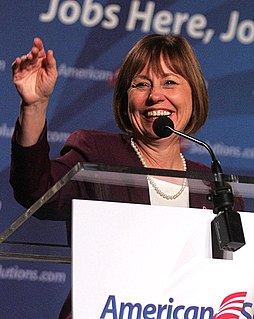A Quote by Joseph Stiglitz
Free migration within Europe means that countries that have done a better job at reducing unemployment will predictably end up with more than their fair share of refugees. Workers in these countries bear the cost in depressed wages and higher unemployment, while employers benefit from cheaper labor.
Related Quotes
Education is the key to the future: You've heard it a million times, and it's not wrong. Educated people have higher wages and lower unemployment rates, and better-educated countries grow faster and innovate more than other countries. But going to college is not enough. You also have to study the right subjects.
Because tax cuts create an incentive to increase output, employment, and production, they also help balance the budget by reducing means-tested government expenditures. A faster-growing economy means lower unemployment and higher incomes, resulting in reduced unemployment benefits and other social welfare programs.
All of the progress that the US has made over the last couple of centuries has come from unemployment. It has come from figuring out how to produce more goods with fewer workers, thereby releasing labor to be more productive in other areas. It has never come about through permanent unemployment, but temporary unemployment, in the process of shifting people from one area to another.
In Europe and the United States the two decades following the Second World War will for long be remembered as a very good time, the time when capitalism really worked. Everywhere in the industrialized countries production increased. Unemployment was everywhere low. Prices were nearly stable. When production lagged and unemployment rose, governments intervened to take up the slack, as Keynes had urged.
[Social legislation] raised the cost of production; and what can be more illogical than to raise the cost of production in the country and then to allow the products of other countries which are not surrounded by any similar legislation, which are free from any similar cost and expenditure freely to enter our country in competition with our own goods...If these foreign goods come in cheaper, one of two things must follow...either you will take lower wages or you will lose your work.
Full employment does not mean literally no unemployment; that is to say, it does not mean that every man and woman in the country who is fit and free for work is employed productively every day of his or her working life ... Full employment means that unemployment is reduced to short intervals of standing by, with the certainty that very soon one will be wanted in one's old job again or will be wanted in a new job that is within one's powers.
I find it remarkable that virtually all of the large difference in labor supply between France and the United States is due to differences in tax systems. I expected institutional constraints on the operation of labor markets and the nature of the unemployment benefit system to be more important. I was surprised that the welfare gain from reducing the intratemporal tax wedge is so large.
The U.S. and, to a certain extent, countries in Europe as well, have experienced growing inequality within their population for decades - a small group of people own the lion's share of the wealth. Populists take advantage of this, and their policies are extremely hard to predict. And this has serious consequences. Companies shy away from risk, postponing their investment decisions in times of uncertainty, the stock markets get nervous and unemployment threatens to increase.
































